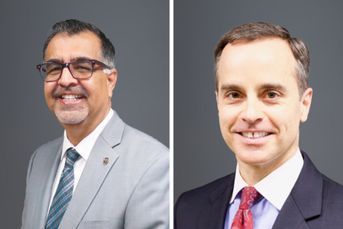What’s a 401(k)? Two-fifths of Americans admit they don’t know

National poll reveals worrying knowledge gaps, demographic differences in financial habits, and popular money-saving strategies.
A recent study highlights a significant gap in financial understanding among Americans, with nearly 43 percent of participants admitting they’re not clear about what a 401(k) retirement plan is.
The survey, which was conducted by OnePoll on behalf of Beyond Finance, polled 2,000 US residents balanced across generations to gauge the country’s financial literacy and readiness to adopt sound financial habits.
Thirty-nine percent of respondents believe they are more financially literate than the average person. Confidence in personal finance knowledge is notably low, with just 30 percent believing they could win in a trivia game focused on financial topics, and 35 percent confessing they don’t know the term “interest” as it applies to personal finance.
The study also uncovered a hesitation to engage with personal finances, with roughly 40 percent of those surveyed saying they put off taking steps toward healthier financial habits.
Among generations, Gen Z members show the most willingness to improve their financial behaviors, whereas millennials appear least likely to make positive changes. One-quarter of all respondents said they procrastinate on personal finance tasks because of stress, while 16 percent said they feel financially hopeless, believing their situation can’t get any worse.
“Some people tend to neglect taking stock of their financial situation, and others can become nervously consumed by it,” Erika Rasure, chief financial wellness advisor of Beyond Finance, said in a statement.
Despite these challenges, 80 percent of people in the poll said they try to set a monthly budget. Millennials and baby boomers were the most conscientious, with 81 percent from each group saying they create spending plans.
However, sticking to budgets consistently proves difficult. On average, respondents said they follow their budget just 66 percent of the time, with baby boomers being the most disciplined at 76 percent, and Gen Z least likely to follow through at 58 percent.
The survey revealed various money-saving strategies, including buying sale items (53 percent), utilizing coupons and discount codes (47 percent), and reining in clothing expenses (45 percent). Two-fifths (39 percent) said they cut back on going out to restaurants and bars, while another 36 percent said they either deprioritize or remove travel from their vacation plans.
The poll also touched on the personal side of finance, with 39 percent of people in committed relationships saying poor spending habits – theirs or their partner’s – have a negative impact. On the flip side, 63 percent of coupled respondents agree that building financial literacy together would raise their chances of cultivating better money habits.
“The more you know about money and personal finances, the more equipped you’ll be to make better decisions and create a plan to meet your goals,” Rasure said.
Retirement savings gap persists despite bull market, Ascensus CEO says
Learn more about reprints and licensing for this article.








